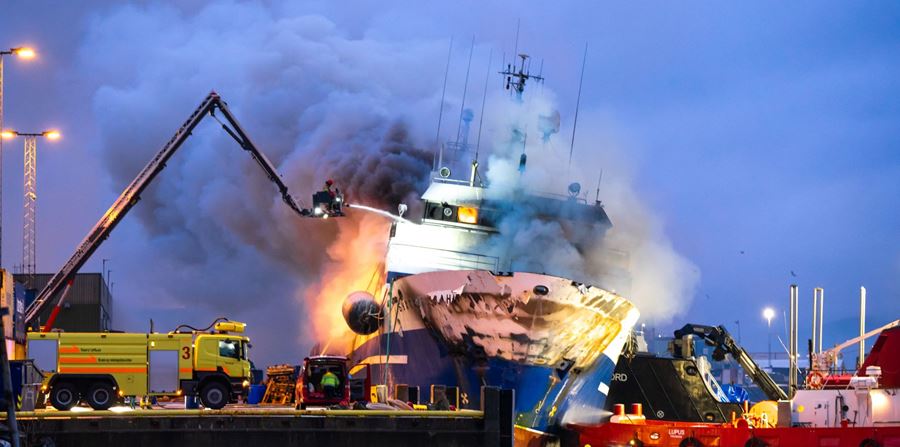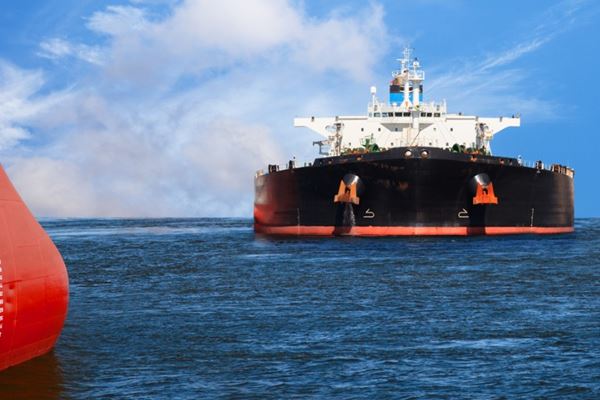A Marine Engineer’s Role During Subrogation

Marine-related losses cover a wide range of incidents from vessel and machine failure, cargo loss, natural disasters, theft/piracy, fires, explosions, crew injuries, and many other scenarios. Following a loss, it is natural for all involved parties to become preoccupied with immediate safety needs; however, it is vital to simultaneously secure the scene as early as possible to ensure important evidence is not tampered with or overlooked and a proper investigation can take place.
Once crew, passengers, and response teams are safe, the vessel secured, and defensive actions are taken to prevent further threats to public health or the environment, the scene can be secured and documented. Failure to retain all evidence surrounding a loss may result in spoliation of valuable evidence, such as photographs, equipment, documents, or electronic information. If all potential areas of concern are not taken into consideration, important evidence can be lost forever. An experienced marine engineer can provide valuable input and assistance to ensure the full scope of evidence is preserved. Without a marine engineer involved, crucial pieces of evidence may be missed or overlooked.
Brown and blue water vessels (onshore and offshore) are inherently complex pieces of machinery, operating in everchanging environments. With this complexity comes numerous potential parties involved in areas ranging from construction to operation and maintenance of the entire vessel, its operator and crew, and all equipment throughout. Several of the most common marine-related losses and their subrogation potential are detailed in this article.
Marine Fires
Forensic marine engineers often assist in insurance claims and litigation following vessel, container, or other marine-related fires. While a marine fire expert can determine the origin of a shipboard fire, often a marine engineer is required to opine on specifics related to design and operation in order to determine causation.
Shipboard firefighting systems can differ greatly from their land-based counterparts. Marine-specific design variables include marine fire protection and detection systems, dampers in ventilation trunks, space-dependent fire protection, and fuel and electrical isolation remote shutdowns. These measures ensure that 1) hazardous spaces are well outfitted to control the spread of fire outward and 2) occupied spaces are well outfitted to protect passengers and crew from fire originating elsewhere. A thorough understanding of these systems is pivotal to exploring all avenues for subrogation from the origin to the extent of the fire damage. It is also imperative that maintenance logs, electronic information relating to automated fire-fighting systems, data from the ship’s engine control room, and the fire scene be documented and secured in the aftermath of a fire.
Allisions and Collisions
The liability of a vessel allision with a stationary object will invariably be put on the vessel. Though in some cases environmental conditions or navigation errors may be attributable, more times than not an engineering failure likely caused a propulsion, steering, or navigation error. Involvement of a marine engineer with a firm grasp on these complicated systems is vital in ensuring all possible causations are considered. Without a deep understanding of these differences, it’s quite likely potential causes of a loss may not be explored. As an example, marine pumps and motors must be designed to operate up to specific angles of roll and pitch to account for ship motions. Beyond those limits, equipment may fail or experience degraded performance.
Very similarly, although not without added complexity, an investigation of a collision between two vessels should involve a marine engineer from the onset to investigate any failure of propulsion, steering, or navigation equipment. Timely response by the marine engineer ensures preservation of evidence, necessary crew interviews, and a full understanding of the causal factors whether crew-related or equipment/maintenance concerns.
Following an allision or collision, a marine engineer must ensure all data related to the accident is captured and secured including navigation data, engine room control data, and maintenance records for propulsion, steering, and navigation systems. Maintenance logs, witness statements, photographs, and video of damage, or the accident itself, must also be preserved to maximize subrogation potential.
Subrogation Questions to Ask
To guarantee the full potential of subrogation is realized on a new claim, an adjuster or legal professional should engage an experienced marine engineer to secure the scene safely and adequately.
The following information can be helpful to gather from the insured as quickly after the loss as possible:
- What is the age, condition, and maintenance history of the damaged property? Documentation of recent repairs and maintenance logs is important in determining changes to the as-built condition.
- At the time of the accident, who was operating the vessel? What function(s) was the vessel performing? What were the environmental conditions?
- If damage pertains to cargo, gather shipping documents/Bill of Lading for damage to goods in transit. Any Special Notice Requirements must be considered as well as legal liability for Damage to Goods in Transit, Carmack Amendment, etc.
Our experts are ready to help.

